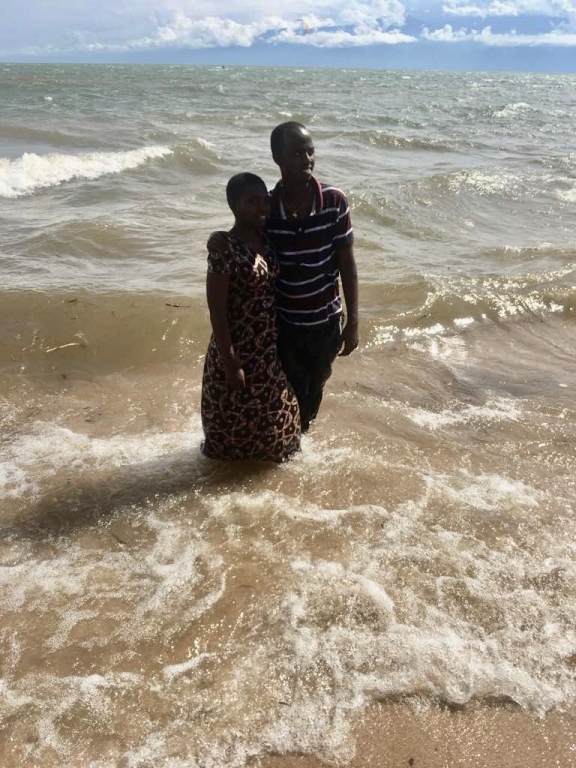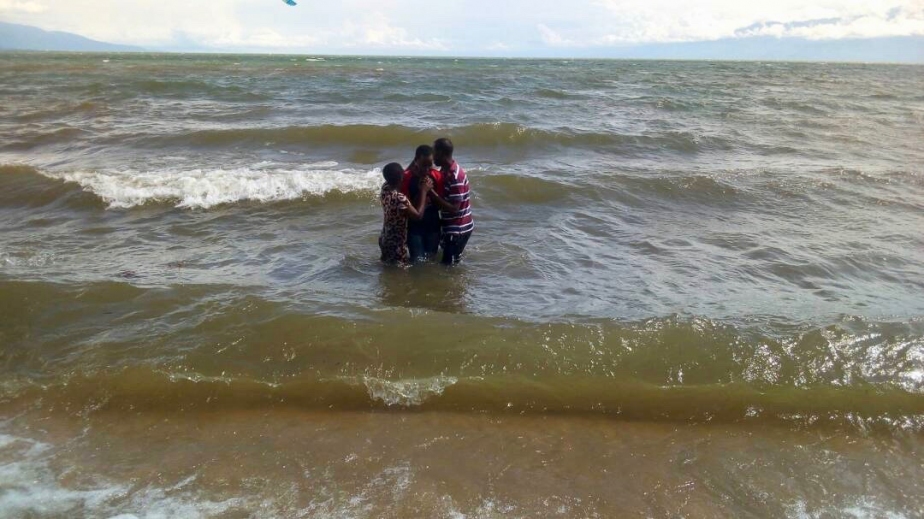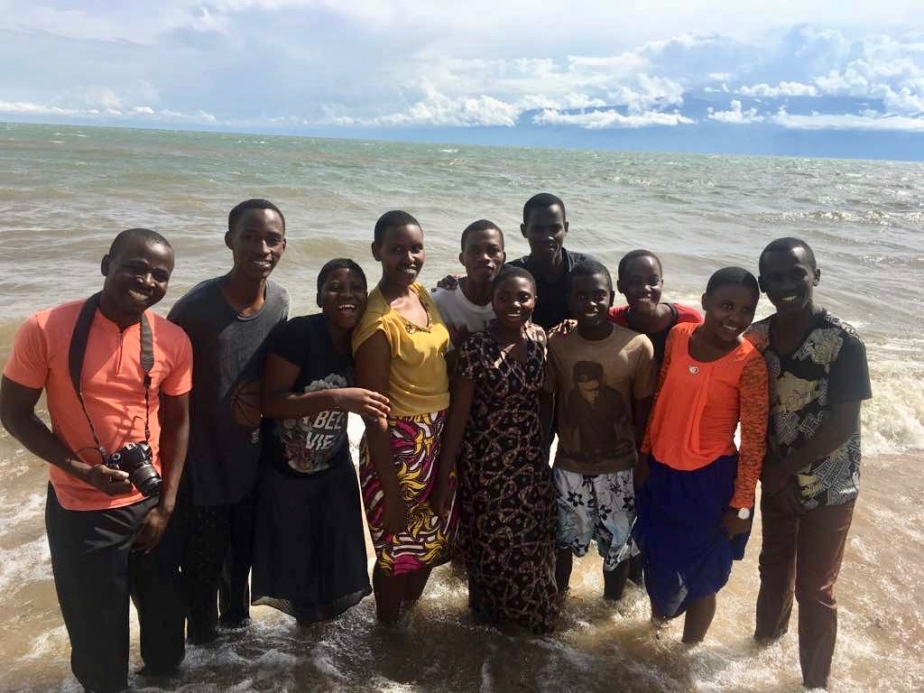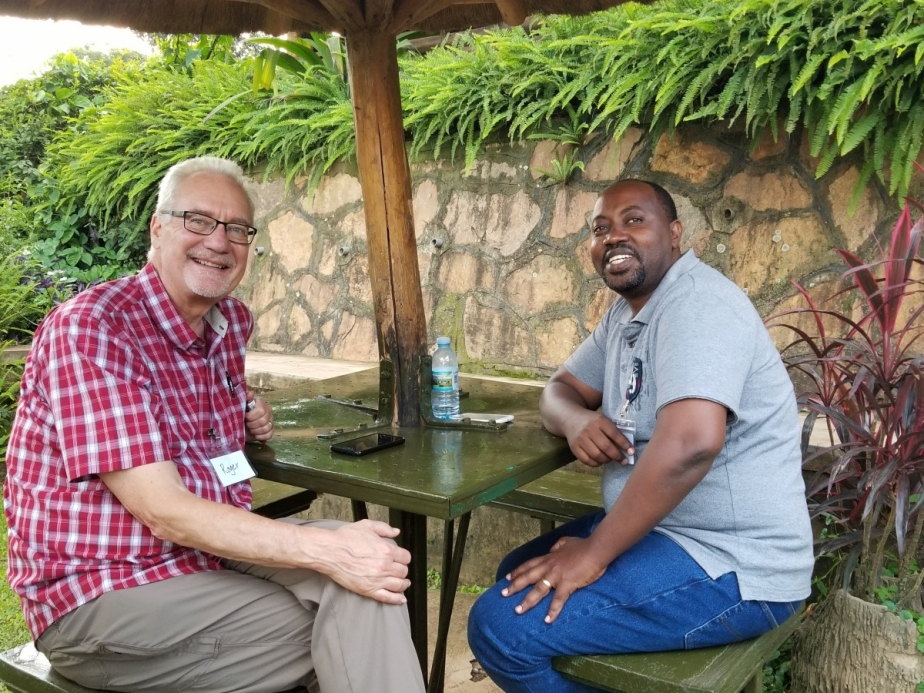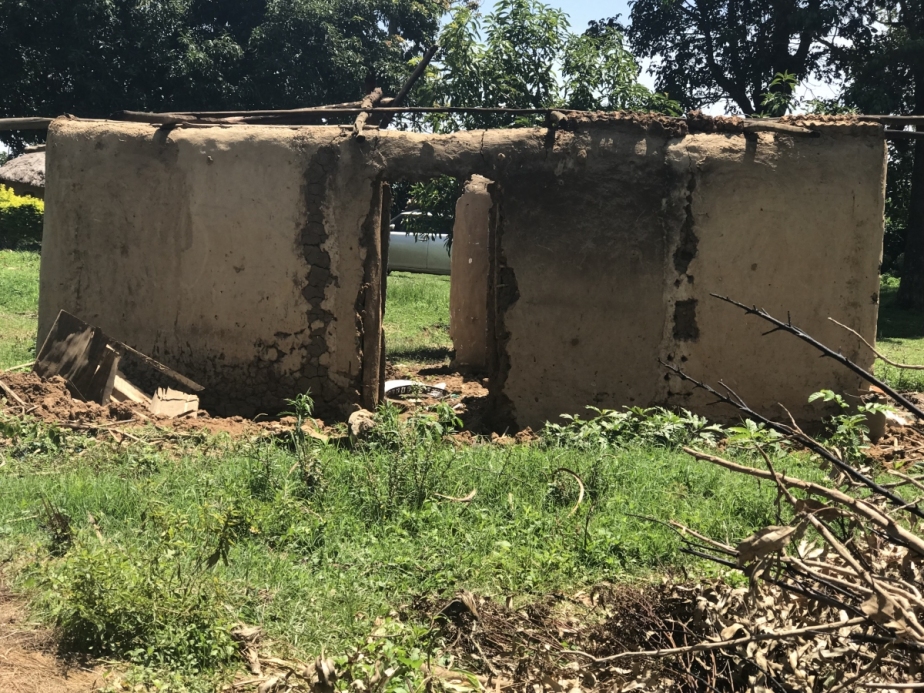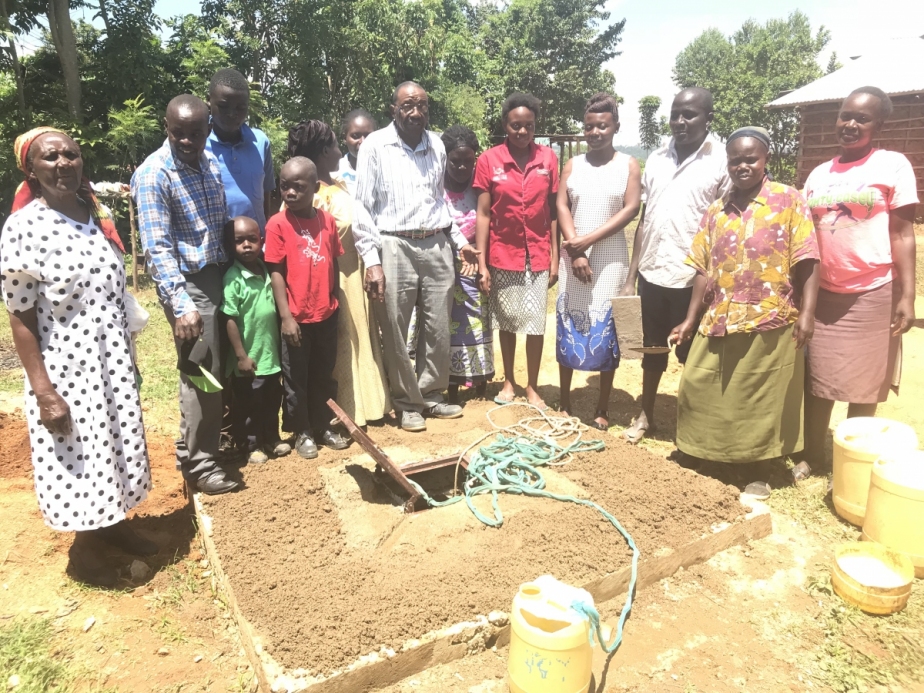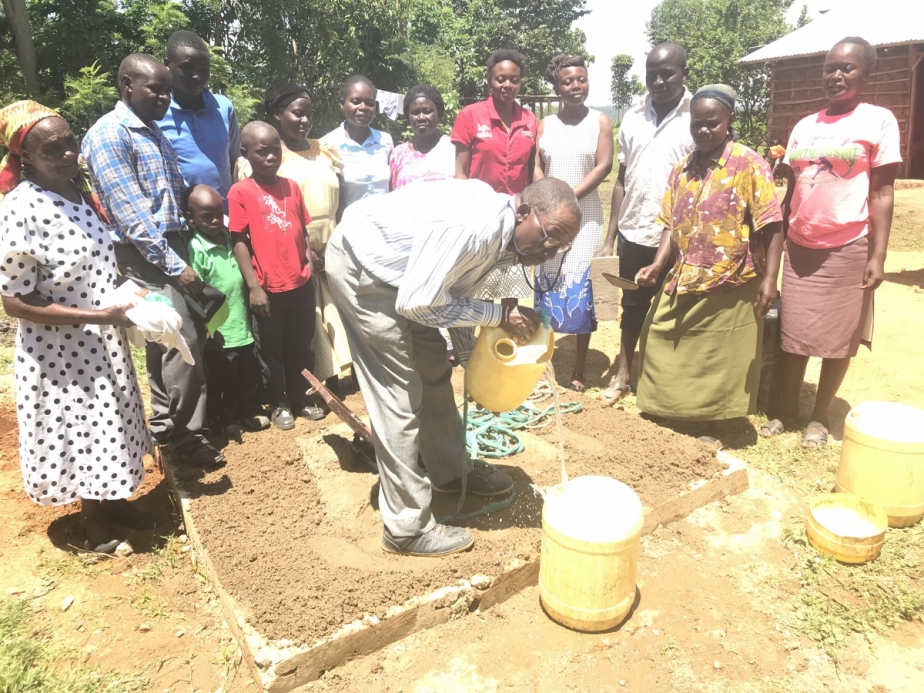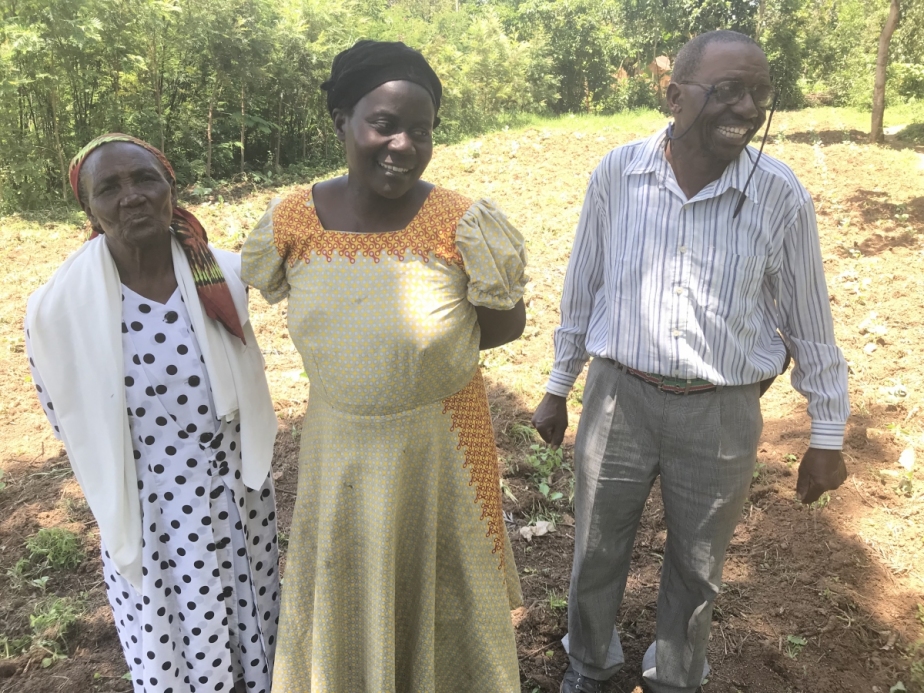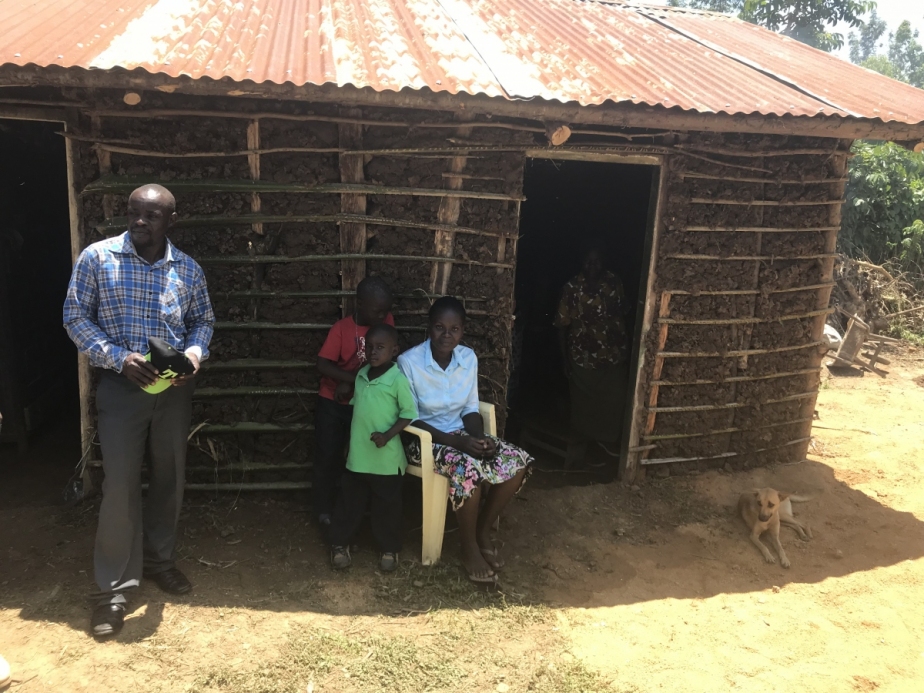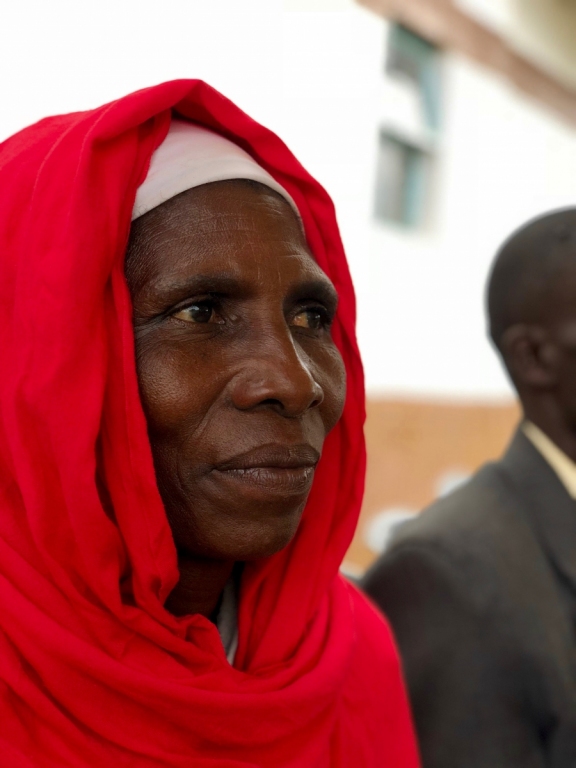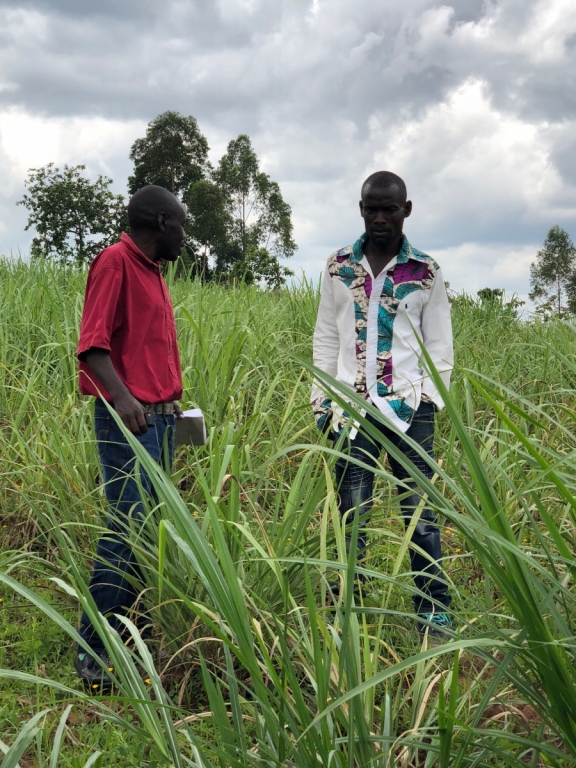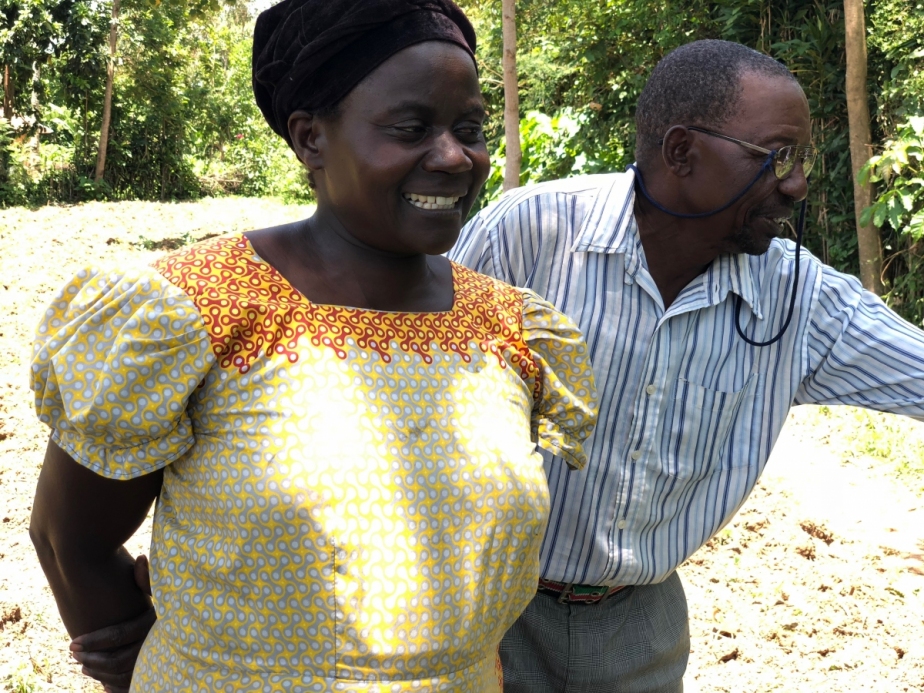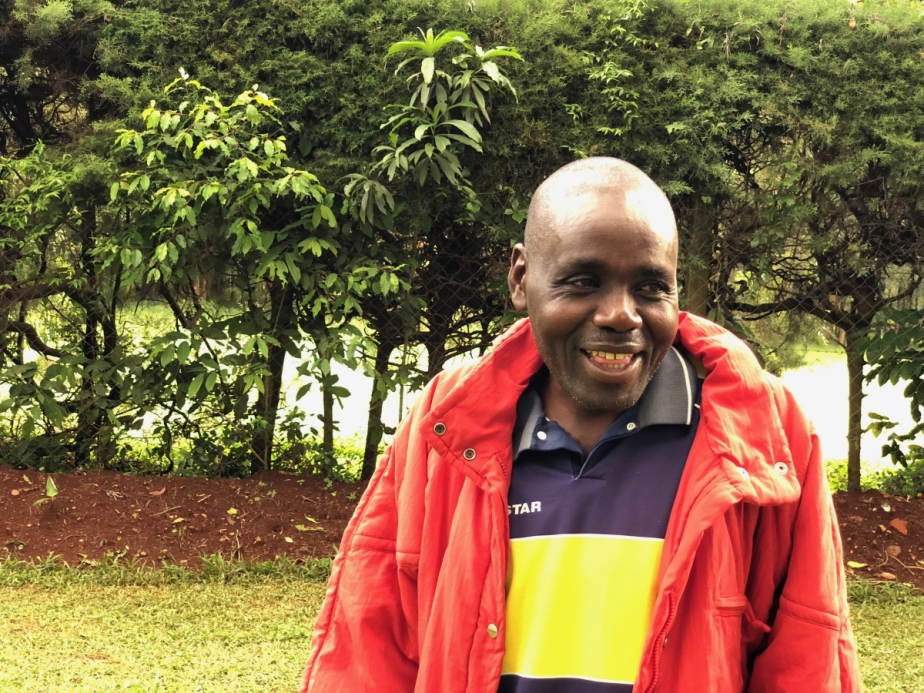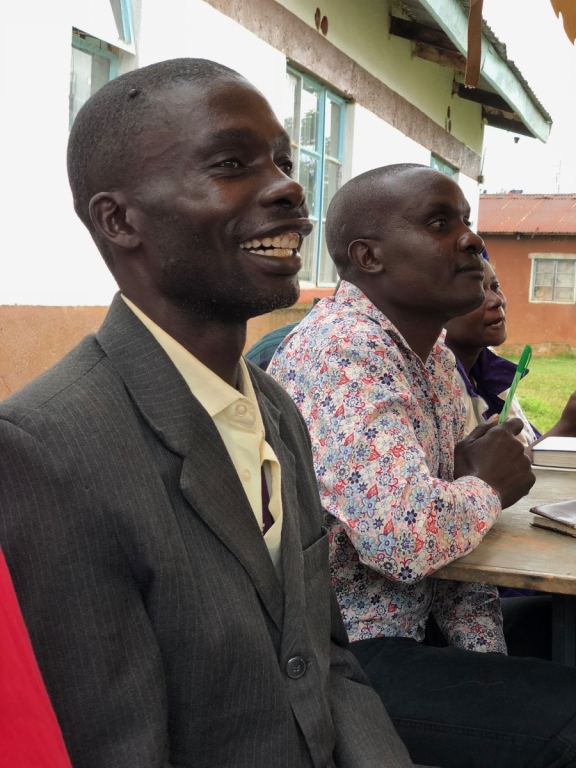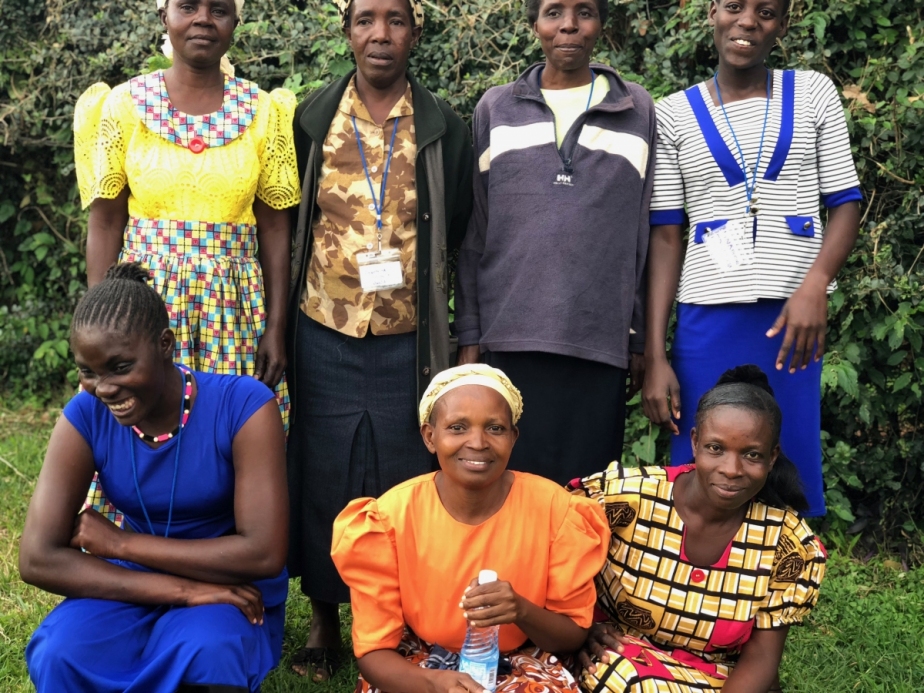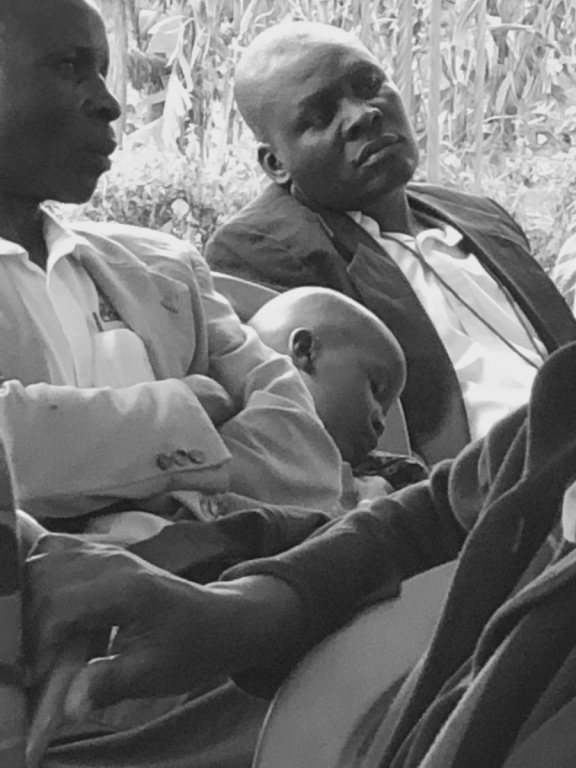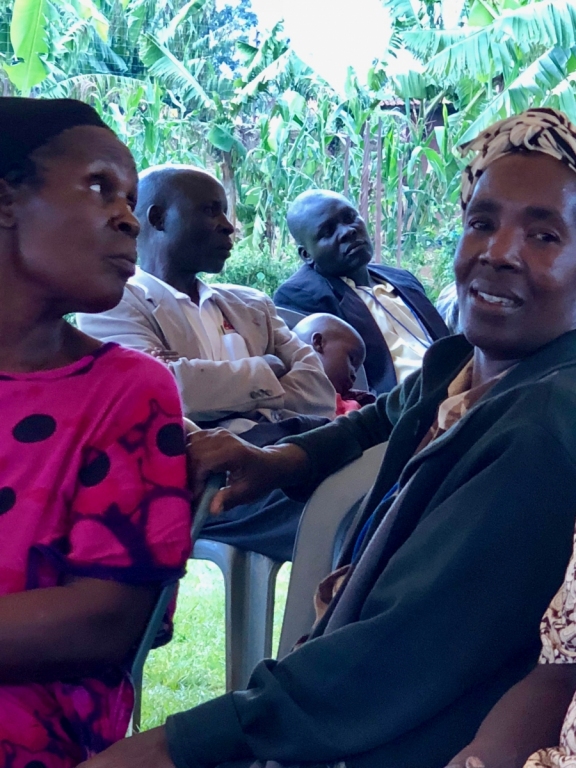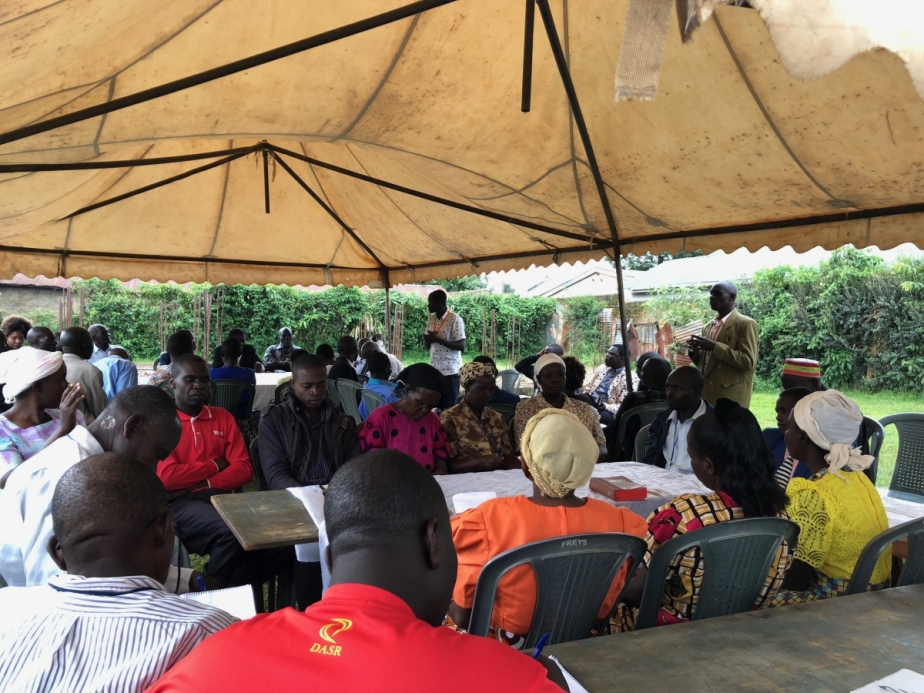— Training Teachers and Leaders in Kampala
 Roger
Roger
“Teaching is not just speaking and preaching.”
Our African leaders know this, but frankly, they love to preach.
“Teaching means involving others in the process of learning, and people learn best not just through their ears but through their eyes and through actions as well.”
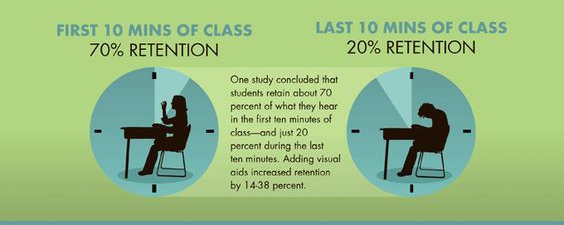
How to teach people effectively was a key theme as leaders from five countries gathered to develop their leadership, coaching, and teaching skills to better equip their leaders to multiply strong disciples, churches, and capable leaders.
Special appreciation to Brian, from Coaching Missions International, who spent the week with us training and coaching leaders from the field.
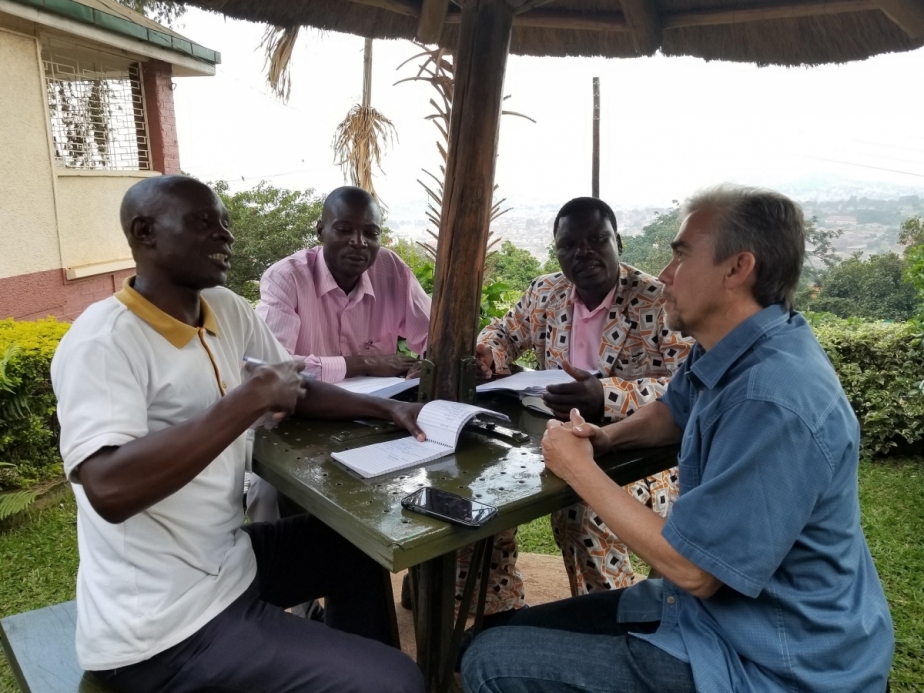
Participants Share Appreciation
From Kenya:
“This has been amazing week to work on new training curriculum that will help the network to grow. We really thank God for the provision.”
From Uganda:
“I learned that if God has told you to go, you must be willing even to die to share the Gospel.”
“Change must begin with me. I must have love.”
From Burundi:
“Our team learned so many things… on how to sustain the DNA of movement, on passion for the lost people in our countries and beyond, on the ROLE of Timothy, on relying on prayer and the Holy Spirit…”
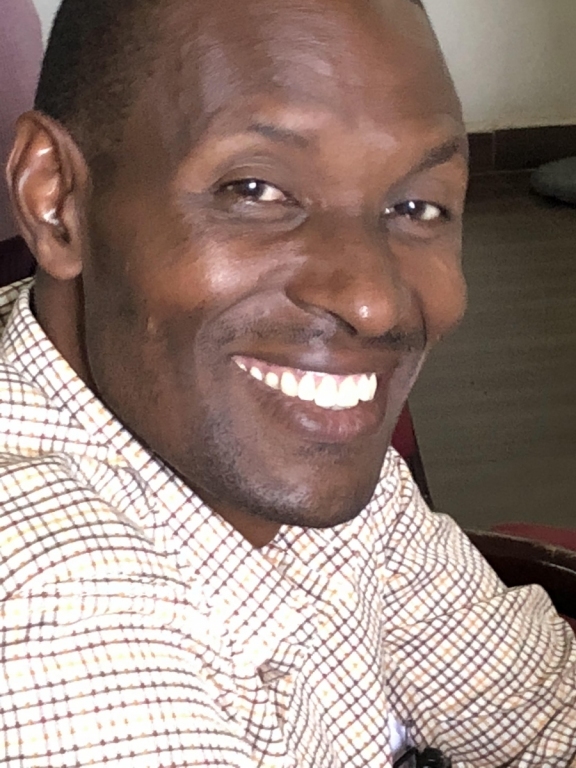
Worship and Prayer
You cannot have a conference in Africa without experiencing both their fervor in prayer and their joy in worship!
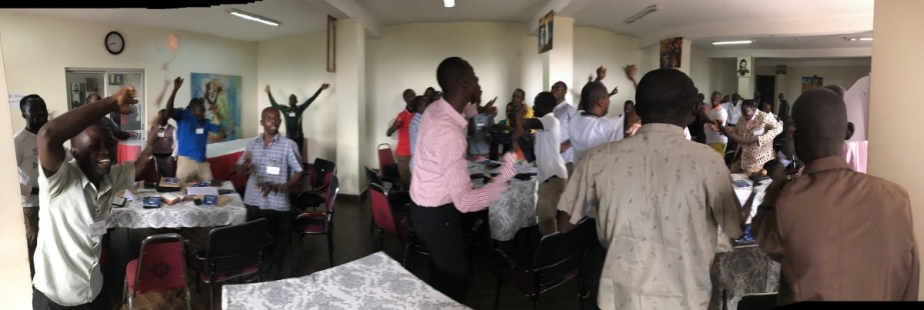
Conference Sessions
1. Active Learning
These sessions focused on how to teach Bible doctrines and leadership using ears, eyes, and actions. Teams provided skit-type examples from Jesus who provided many examples of this type of teaching:
- Jesus walking on water and calling Peter to do the same to teach the power and importance of faith.
- Jesus washing disciples’ feet to teach on servanthood as the key to leadership.
- Jesus healing the paralytic and then using this as a teaching moment on God’s ability to forgive sin.
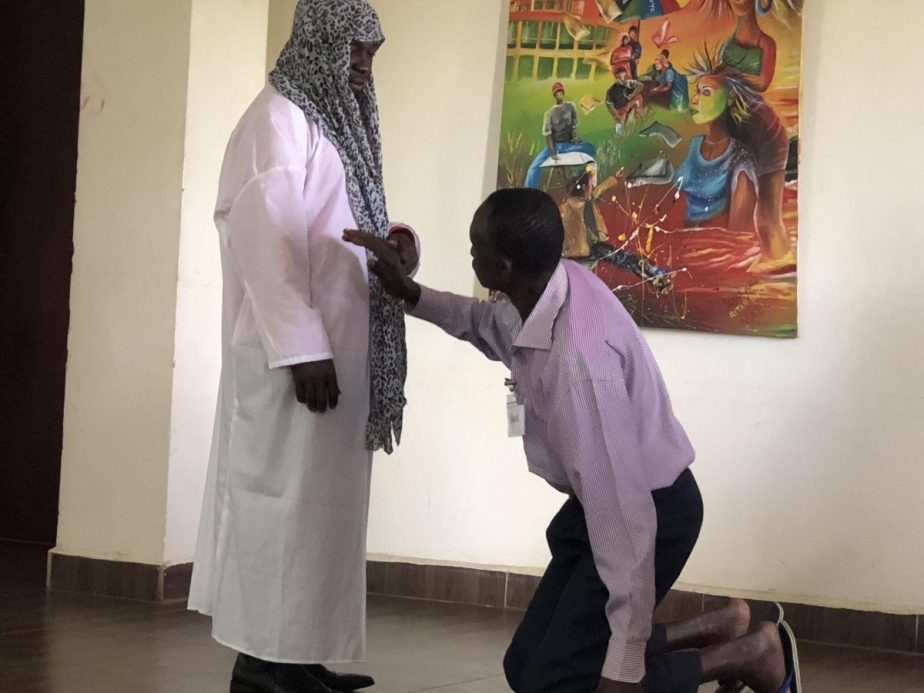
2. Church Planting as Lifestyle
One of the strengths of these leadership teams is that ministry and church planting is a lifestyle not a method of ministry. The teams were greatly encouraged as they reviewed and shared with one another the dynamics of this church planting lifestyle:
- A personal relationship with God through daily interaction in His word
- A life of prayer
- A vision based on Matthew 28 – for every person from every nation to be disciples of Jesus
- Living out of Luke 10: looking for persons of peace, people of influence, who can be reached and helped to influence others with the Gospel
- Gathering into New Testament churches
- Commissioning every disciple to go and reach other disciples by providing on the job training (apprenticeship).
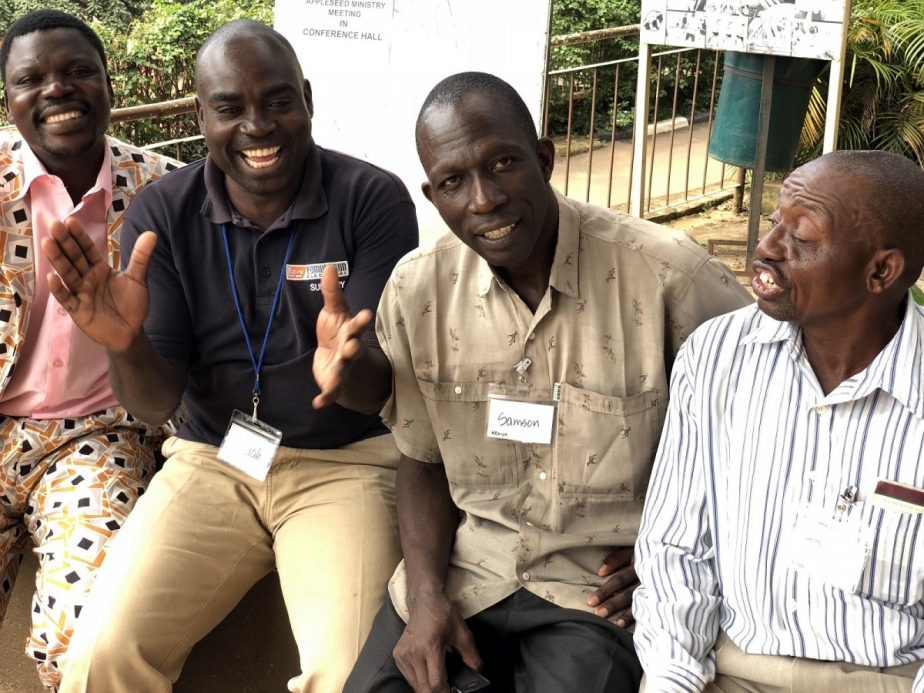
3. Coaching of Leaders
Leaders had the opportunity to learn good coaching skills while also experiencing times of personal coaching.
“I learned about a coach. This is someone who asks a lot of questions and doesn’t just tell someone the answer. This is so important.”
“I learned how to prepare my heart and mind to achieve the goals God has set before me.”
4. Reports and Collaboration
“We learned from others how they are sending teams to unreached people groups far from their home. We are exchanging so many different ideas and ways we are reaching people.”
Much is learned as leaders from one country share reports with the other countries on how God has been working. This leads to much fruitful discussion as they learn from one another. Here are a couple of examples of what was shared:
- Kenya: we are now reaching into the Turkana/Pokot area where we have to go with armed escort and there is so little water. But we are learning to be missionaries there.
- Uganda: because of Bibles we find that so many new groups are able to start.
- Burundi: women must not be forgotten as they can be more effective church planters than men.
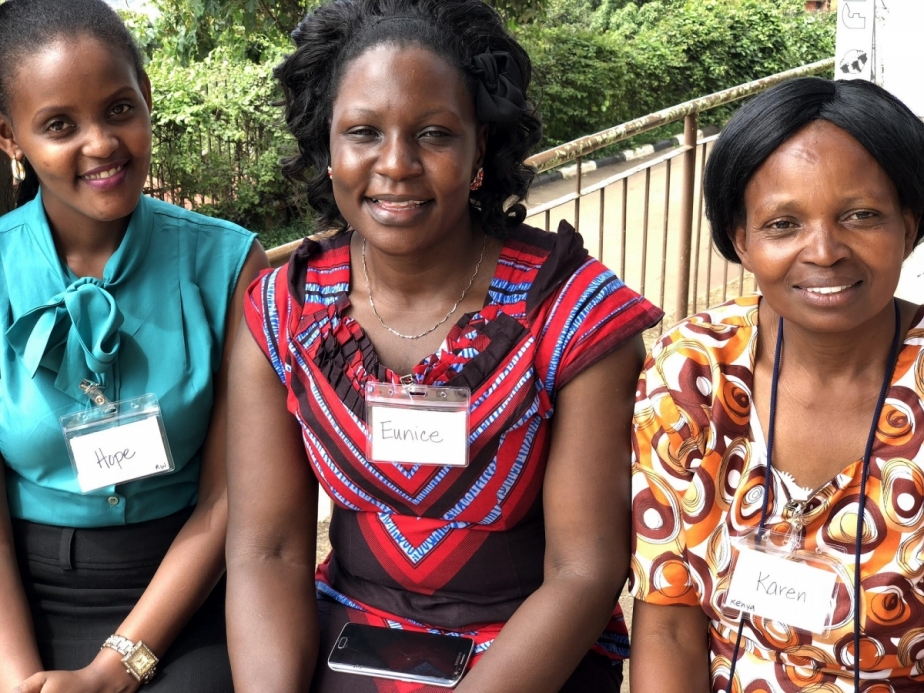
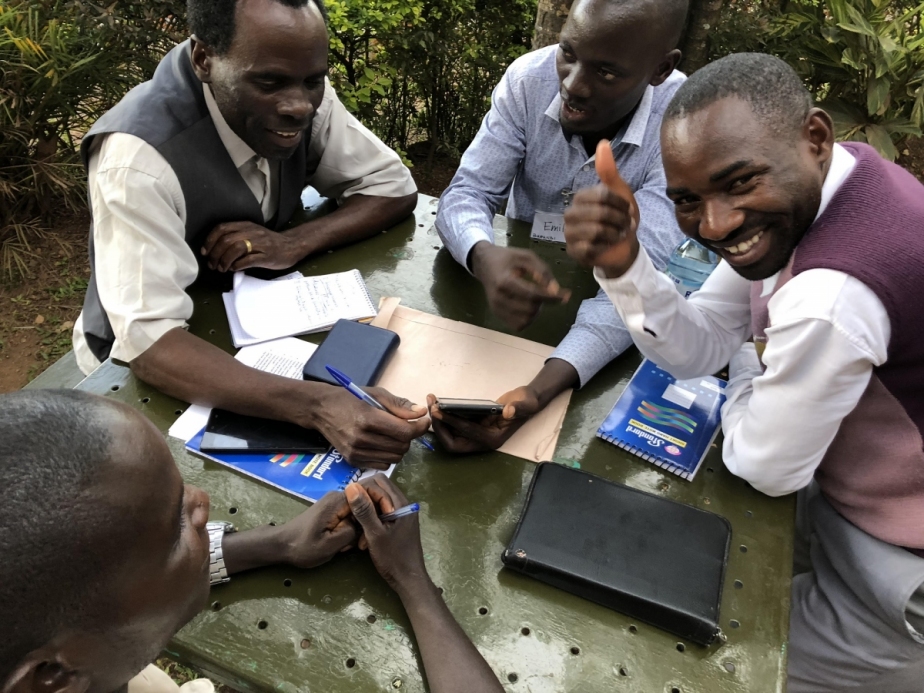
Gratitude
We want to thank God for His provision for this week and the generous assistance of Voice of the Martyrs.
We prayed specifically that this week would be free of distractions and problems that can easily detract from such a powerful time together. And God thoroughly answered that prayer by His grace.
Thank you, all, for your part in partnering with these leaders!


